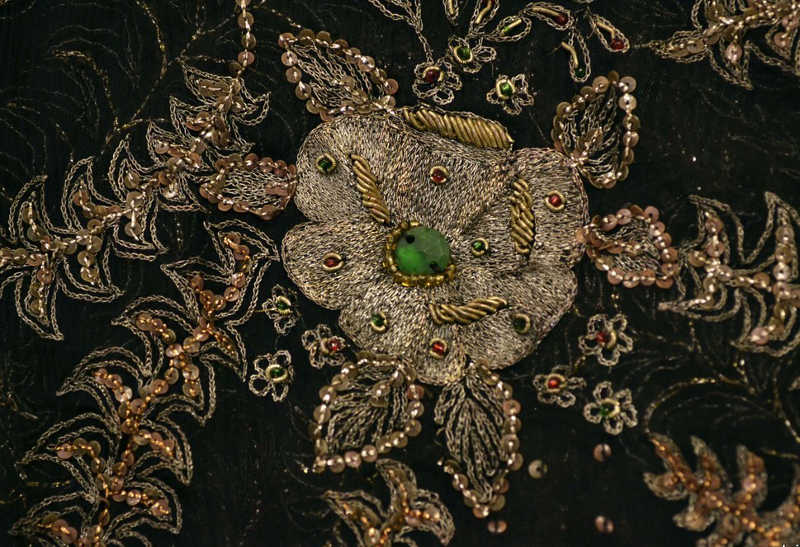===
0453,
1
===

=== |
 |
ḳhurramī : 'Cheerfulness, pleasure, delight, joy, gladness, mirth'. (Platts p.489)
bar : 'Breast, bosom, chest; — ... breadth (of cloth)'. (Platts p.142)
bar : 'Choosing, selecting; choice, election, wish, request, boon, favour, blessing, good; anything chosen as a present; gift, reward, recompense'. (Platts p.142)
FWP:
SETS
MOTIFS == CLOTHING/NAKEDNESS
NAMES == EID
TERMS == ZILAOf course, for Eid people get festive new clothes, and they embrace each other. Since the beloved does not embrace the lover, he wears mourning clothes, with ample wordplay based on bar (see the definitions above).